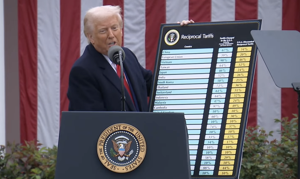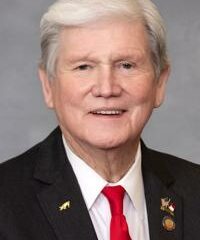Hydrogen is the next frontier of energy production. Governments around the globe are implementing policies to attract investment and buildout the essential infrastructure to produce, distribute, and use hydrogen across every sector of the global economy.
In recent years, China has moved aggressively to become a global leader for the hydrogen industry. The Chinese Communist Party (CCP) approved new policies to boost its domestic low-carbon hydrogen sector and the nation accounts for over 60% of the global electrolyzer manufacturing capacity.
The United States has also positioned itself to capitalize on the hydrogen opportunity.
The federal government created the Regional Hydrogen Hub Program and the Section 45V Clean Hydrogen Production Tax Credit to spur investment and development. Combined, these two policies aimed to be the U.S.’s down payment to expand its status as the preeminent global energy leader by paying the entry price to compete for clean hydrogen investment. And at this stage of the nascent industry’s development, immense economic and environmental benefits can be gained by investing now.
For Texas, embracing hydrogen has been a no-brainer, and the technology could soon emerge as a catalyst for the state’s next big energy boom. Texas already leads the country in energy production – gas and renewables – and has the infrastructure and expertise to be a global hub for hydrogen. The Gulf Coast not only contains more than 1,600 miles of hydrogen pipelines but also the deep engineering talent needed to construct and maintain hydrogen facilities.
Texas currently contains 33% of U.S. hydrogen production capacity, and companies have made billions in commitments to build more. In fact, Texas holds nearly half of America’s largest hydrogen projects – those exceeding $1 billion in investments.
This potential to dominate the global hydrogen market is why the Department of Energy (DOE) selected Texas’s HyVelocity Hydrogen Hub along the Gulf Coast to advance domestic hydrogen production. The hub is part of a collaboration with some of the largest energy producers in the world, including Chevron and ExxonMobil, and is projected to contribute over 45,000 new jobs, along with $100 billion to the state’s gross domestic product.
With economic benefits like that, it’s no surprise there is momentum building across the U.S.
However, policy uncertainty – particularly surrounding the hydrogen production tax credit – risks losing our competitive edge to China, Europe, and the Middle East that are accelerating their own hydrogen development.
If Congress were to put 45V on the chopping block, Texas would risk losing out on billions of dollars. One study from the University of Texas found that a hydrogen-rich Texas economy could create more than 750,000 new jobs and have an average net economic benefit of $122 billion by 2050.
Policies like 45V provide American businesses with the certainty they need to do what they do best: invest and build. This technology-neutral tax credit isn’t about picking winners or losers. It’s about ensuring that American companies, especially those already investing in Texas, can compete on the global stage.
However, there are positive signs that Congress will maintain and support important policies like 45V. Twenty-one Republican representatives and four senators are defending energy tax credits as Congress debates the budget reconciliation bill. We need these leaders to stand firm in that commitment.
Hydrogen is the next frontier, and Texas has the resources, expertise, and infrastructure to lead the way. Congress needs to maintain a common-sense, all-of-the-above approach to our country’s energy future, and preserve policies like the hydrogen production tax credit.









































